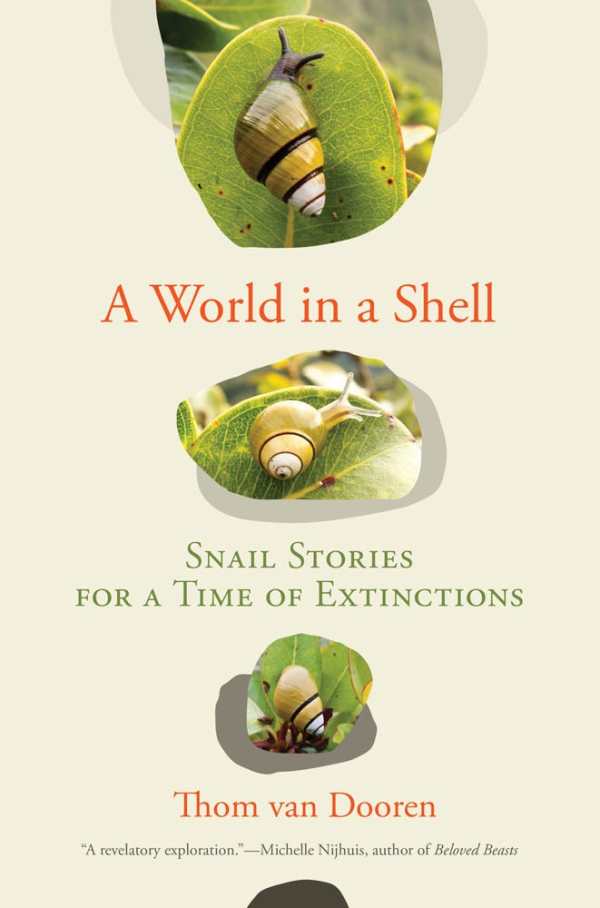It looks like you've stumbled upon a page meant to be read by our code instead of viewed directly. You're probably looking for this page.
A World in a Shell
Snail Stories for a Time of Extinctions
“Each and every extinction has its own story,” writes Thom van Dooren in his attentive, elegiac book A World in a Shell, which regards Hawai’i’s lost and endangered snail species as instructive microcosms of biodiversity loss.
Snails are full of surprises. They are hermaphrodites, so self-fertilization is possible. Mostly blind, they rely on chemoreception (similar to the human senses of smell and taste), and their slime serves for both spatial orientation and social interaction. They may have arrived on Hawai’i by floating across oceans, or even by “flying”—nestling in a migratory bird’s feathers or being blown by the wind.
On top of these astonishing qualities, snails held cosmic significance for Hawai’i’s first people, the Kānaka Maoli, whose traditional lore features snails singing in the forest to reassure that all is well—“a sign that, after a series of adventures, changes, or turbulence, all is righteous, correct, and good” again. But all is not right. An estimated 1,000 snail species have gone extinct worldwide. A Hawaiian species made international headlines in 2019 when George the Tree Snail died. He was the last Achatinella apexfulva, an “endling.”
Van Dooren dubs himself a “field philosopher,” bridging environmental sciences and the humanities. He takes O’ahu as his sphere, where habitats have been lost to cattle ranches, pineapple plantations, and military ordinances. Moreover, invasive species, including rats and rosy wolfsnails, predate native snails. Van Dooren visits exclosures and a captive breeding lab, observing conservationists’ efforts to protect and regenerate snail populations. He also broods on the colonial implications of shell collecting and the “overwriting of the landscape” with anglicized names.
Eschewing more obvious fauna, A World in a Shell makes a strong case for overcoming “geographical and taxonomic biases,” noting that every species lost is a tragedy.
Reviewed by
Rebecca Foster
Disclosure: This article is not an endorsement, but a review. The publisher of this book provided free copies of the book to have their book reviewed by a professional reviewer. No fee was paid by the publisher for this review. Foreword Reviews only recommends books that we love. Foreword Magazine, Inc. is disclosing this in accordance with the Federal Trade Commission’s 16 CFR, Part 255.
